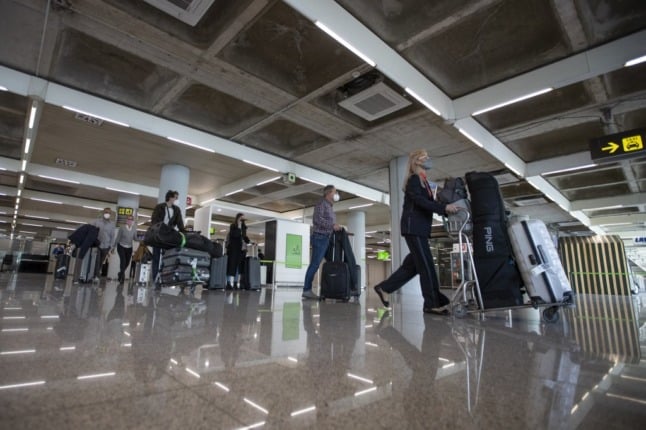Spain’s Official State Gazette (BOE) confirmed this newest extension to the temporary restriction order for non-essential trips and unvaccinated travellers from outside the bloc, first approved on July 17th.
The measure affects unvaccinated people from most non-EU countries who want to travel to Spain, as those who can prove vaccination with one of the inoculations Spain accepts can visit the country for tourism or other non-essential reasons.
In late November, the Spanish government announced that negative Covid tests would no longer be accepted from British visitors looking to spend their holidays in the country and that from December 1st onwards only those that can show proof of being fully vaccinated would be allowed in. This rule remains in place for January 2022 and, keeping in mind the current state of the global pandemic, quite possibly the foreseeable future.
Previous BOEs gave reasons for the extension, stating that “the epidemiological situation has not changed substantially”, but this edition simply confirmed the extension of the current rules in place now until midnight on January 30th 2022.
Spain also has a list of low-risk third countries whose travellers visiting Spain for non-essential reasons can enter without having to present proof of Covid-19 testing or vaccination.
Travellers from these nations are in effect exempt from Spain’s travel restrictions for third countries, and now include Saudi Arabia, United Arab Emirates, Argentina, Indonesia, Australia, Kuwait, Bahrain, New Zealand, Canada, Peru, Chile, Qatar, China, Rwanda, Colombia, Uruguay, and South Korea. This list is updated on a regular basis.
Travellers from third countries on this restrictions-free list may be able to enter Spain without the need for a negative Covid test or a vaccination certificate, but they still need to fill out Spain’s mandatory health control form, which can be found here.
It’s also important to check whether you need a visa or any other documents to enter Spain first and, if so, contact your nearest Spanish embassy to find out if they’re currently issuing these documents.
The other reasons that can be used for travel to Spain from third countries that fall under the non-essential travel restrictions are:
- You are a resident in the EU or Schengen country.
- You have a visa for a long duration stay in an EU or Schengen country.
- You work in transport, such as airline staff or are in a maritime profession.
- You work in diplomatic, consular, international organisations, military or civil protection or are a member of a humanitarian organisation.
- You have a student visa for a country in the EU or Schengen zone.
- You are a highly qualified worker or athlete whose work cannot be postponed or carried out remotely.
- You are travelling for duly accredited imperative family reasons.
- You are allowed entry due to force majeure or on humanitarian grounds.
- And as mentioned earlier in the article, if you have a vaccination certificate that Spain’s Ministry of Health recognises, as well as for any accompanying minors (unless they’re under 12 years of age).
Wednesday’s bulletin also included an update to the list of high risk countries. Now even vaccinated travellers must provide a negative PCR or antigen test result to enter Spain from the following countries: Botswana, Swaziland, Lesotho, Malawi, Mozambique, Namibia, South Africa Zambia, and Zimbabwe.



 Please whitelist us to continue reading.
Please whitelist us to continue reading.
Member comments